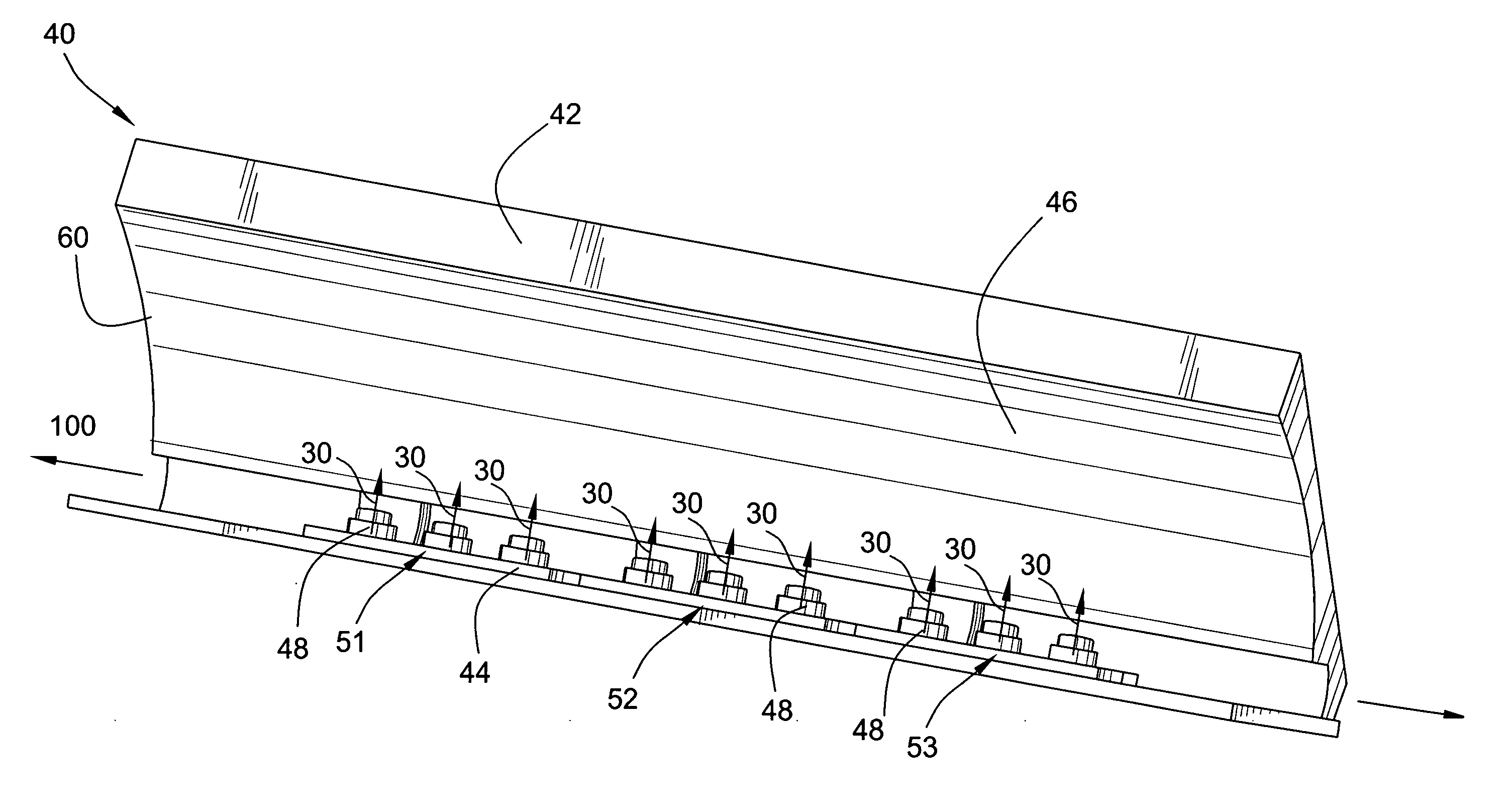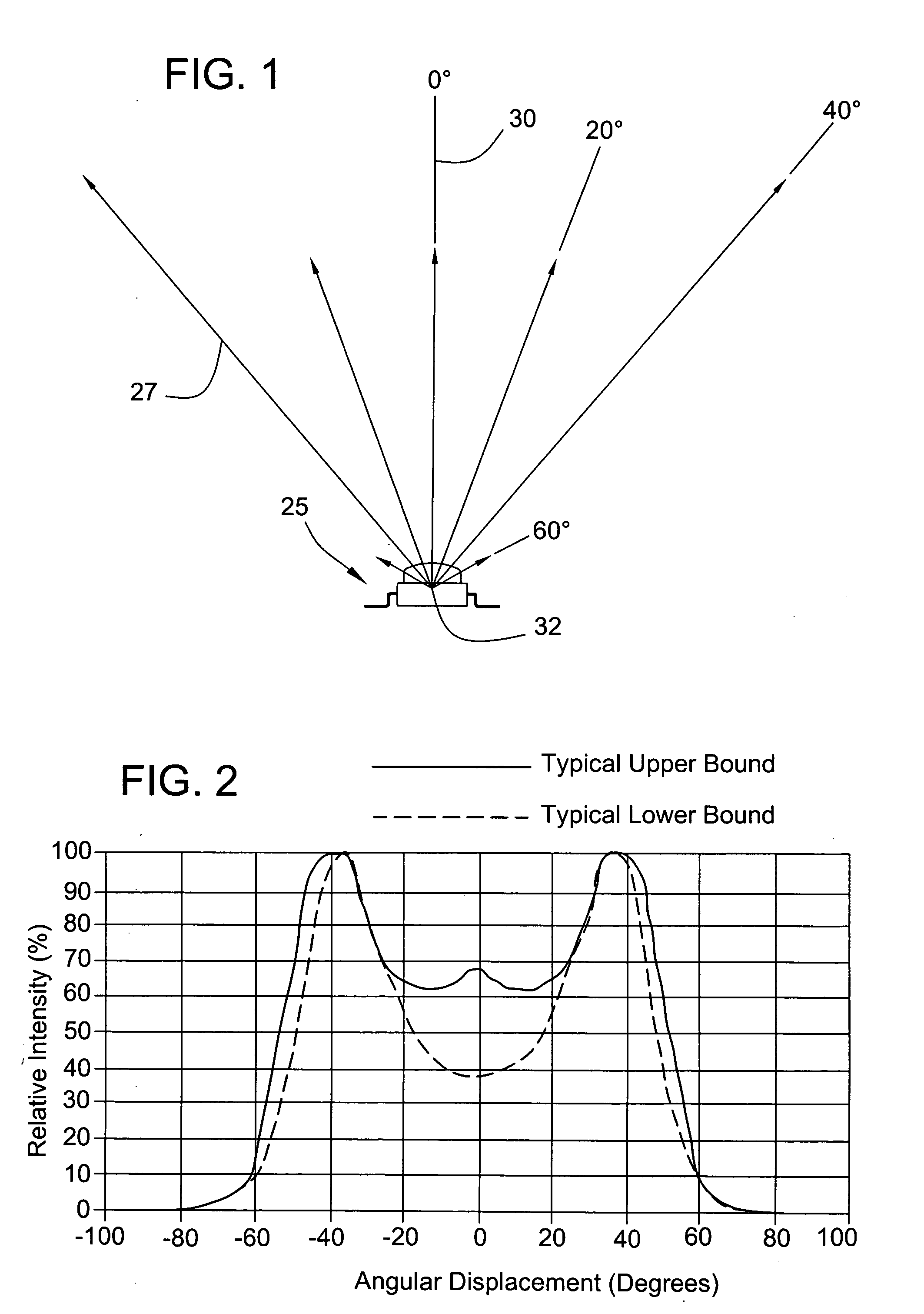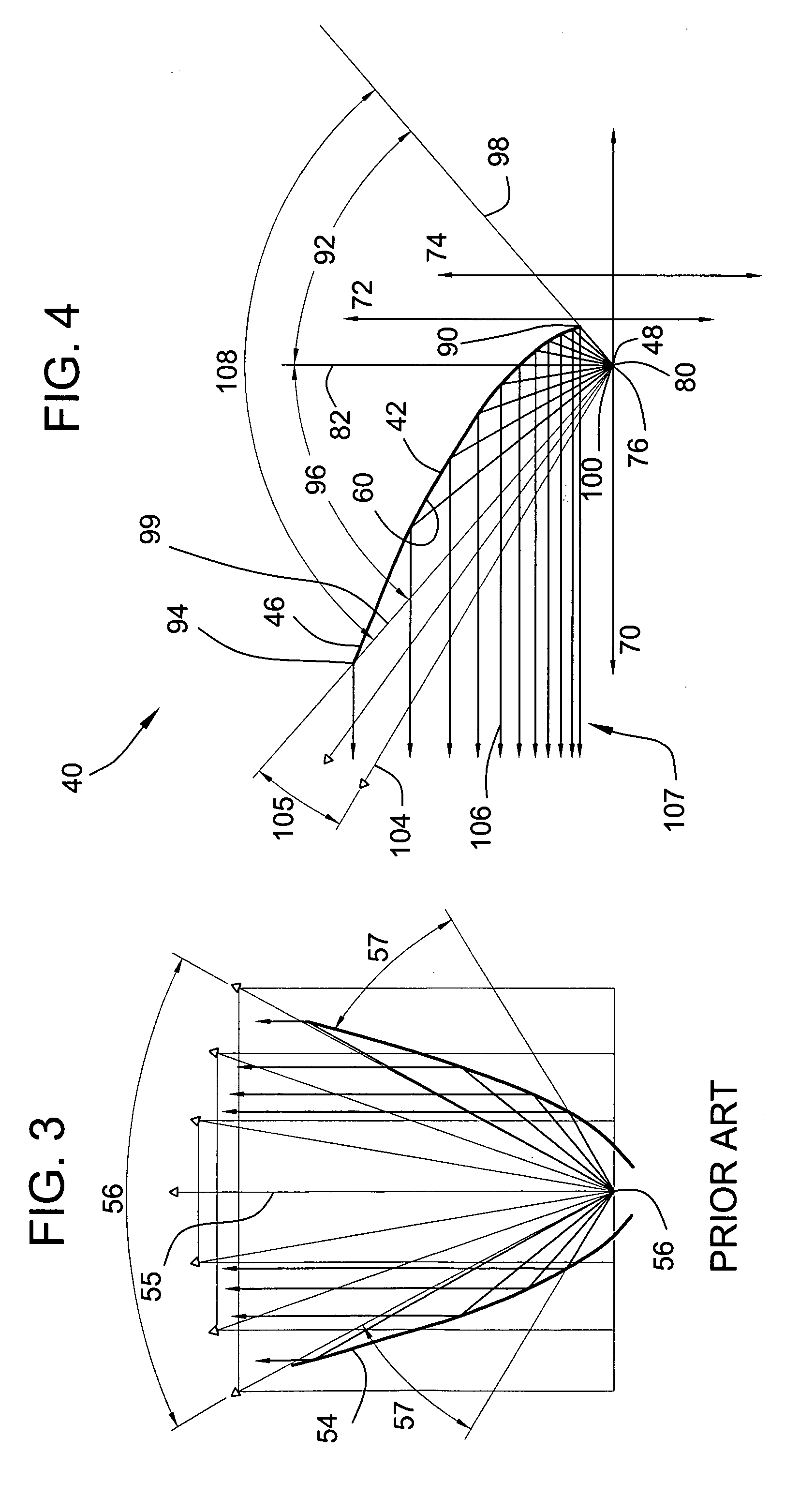Light assembly
a technology of light assembly and light beam, which is applied in the direction of fixed installation, lighting and heating equipment, and support devices for lighting, etc., can solve the problems of poor optical efficiency of -lens-reflector systems, detriment to directionality, etc., and achieve the effect of improving light collection efficiency and facilitating beam shaping
- Summary
- Abstract
- Description
- Claims
- Application Information
AI Technical Summary
Benefits of technology
Problems solved by technology
Method used
Image
Examples
Embodiment Construction
[0031] Referring to FIGS. 1 and 2, the spatial radiation pattern from a typical high output LED 25, in this case a Lumileds Luxeon® LED, along with a graphical representation of the light output of the LED 25 is shown by way of a plurality of arrows 27 with the length of the arrow 27 corresponding to the relative light intensity output for the LED at that location. The radiation pattern clearly demonstrates that the highest light output occurs at approximately 40° from both directions from an optical output axis 30 of the LED (shown in FIGS. 1 and 2 as a 0° axis), and that the majority of the light is produced within 60° from both directions from the output axis 30. The output axis 30 can extend substantially through the center of the face of the lens of the LED through a virtual focal point 32 of the LED. Since the die that produces the light in the LED is a finite size, the virtual focal point 32 can be a theoretical point within the LED where the majority of the light rays being ...
PUM
 Login to View More
Login to View More Abstract
Description
Claims
Application Information
 Login to View More
Login to View More - R&D
- Intellectual Property
- Life Sciences
- Materials
- Tech Scout
- Unparalleled Data Quality
- Higher Quality Content
- 60% Fewer Hallucinations
Browse by: Latest US Patents, China's latest patents, Technical Efficacy Thesaurus, Application Domain, Technology Topic, Popular Technical Reports.
© 2025 PatSnap. All rights reserved.Legal|Privacy policy|Modern Slavery Act Transparency Statement|Sitemap|About US| Contact US: help@patsnap.com



